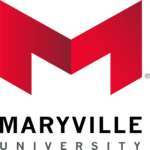Virtually every successful business needs accountants to manage its expenses. Therefore, the need for those with the up-to-date financial and business acumen is paramount in today’s fast-moving world. But, there’s a major challenge: There simply aren’t enough accountants.
More than 300,000 accountants and auditors have recently left their jobs, according to the Wall Street Journal.
“We have a talent pipeline challenge,” says Mike DePrisco, president and CEO of the Institute of Management Accountants.
So, what is the world of accounting doing to try to solve this? Connecting with students earlier and providing them with domain expertise to bring accounting to fields that interest them. IMA, along with the organization behind the well-known certified public accountant (CPA) exam, are two of the dominant players in the accounting education space.
“What we’re seeing in accounting and finance right now is a lot of individuals retiring, and we’re not filling that pipeline with people who are looking to choose accounting,” DePrisco says. He adds many firms have started thinking differently about the people and skills they need to fill needs.
Despite this issue, the profession has seen some wage growth: The median pay for accounts and auditors is about $78,000, according to the U.S. Bureau of Labor Statistics. And the demand for the field is growing just slightly—at a rate of 4%.
“I think the overall value proposition of formal education, vis-à-vis the higher education track, is being questioned because of the cost, the return on investment, the time, [and] the way that the demographic of a traditional college student has changed over time,” DePrisco explains.
| Certificate | Cost | Length | Learn more |
|---|---|---|---|
| Cybersecurity Fundamentals for Finance and Accounting Professionals Certificate | $305–$495 | Self pace within one year | See details |
| Cybersecurity & Data Practices Certificate | $249 | Self pace within one year | See details |
| Accounting Information Security certificate | $11,862 (out-of-state) | Expected one year or less | See details |
| Data Visualization and Communication Certificate | $465 | Self pace within one year | See details |
| Data Analytics & Visualization Fundamentals Certificate | $399 | Self pace within one year | See details |
| Accounting Data Analytics Graduate Certificate | $6,056–$10,200 | 8–24 Months | See details |
Accounting with cybersecurity
AICPA: Cybersecurity Fundamentals for Finance and Accounting Professionals Certificate
Cost: $305–$495
Length: Self pace within one year
Course examples: Cybersecurity Frameworks and Regulations; Cybersecurity Risk Management; The Business of Cybersecurity
IMA: Cybersecurity & Data Practices Certificate
Cost: $249
Length: Self pace within one year
Course examples: Risk & Mitigation; Legal Compliance Considerations; Understanding the System
University of Maryland Global Campus: Accounting Information Security certificate
Cost: $11,862 (out-of-state)
Length: Expected one year or less
Course examples: CyberAccounting: Management and Compliance; Fraud Examination; Accounting Information Systems
Accounting with data analytics
AICPA: Data Visualization and Communication Certificate
Cost: $465
Length: Self pace within one year
Course examples: Data Visualization; Data Communication and Storytelling; Critical Thinking in Data Analytics
IMA: Data Analytics & Visualization Fundamentals Certificate
Cost: $399
Length: Self pace within one year
Course examples: Becoming Data-Driven; Visualizing the Present & Predicting the Future; Applying Data Analytics and Visualization
University of Illinois: Accounting Data Analytics Graduate Certificate
Cost: $6,056–$10,200
Length: 8–24 Months
Course examples: Data Driven Decisions in Accounting; Machine Learning for Accounting; Applying Data Analytics in Accountancy
Lifelong learning: accounting is no exception
Having the fundamental knowledge in accounting and finance will set individuals apart from peers and allow job responsibilities to be delivered more effectively, DePrisco says.
“We need to be thinking more about how we, as a professional association, can support the entire career journey of an individual from early in their career—maybe they’re in university, maybe they’re just out of university,” he adds.
According to Fortune’s ranking, the University of Texas–Dallas, University of North Carolina–Chapel Hill, and the University of Massachusetts–Amherst are home to the best online master’s in accounting.
But beyond simply learning accounting, applying it to in-demand domains is of increasing importance. Accounting associations and universities alike have developed certificate programs in areas like cybersecurity, ESG, data analytics, and more
“We need accountants today to be more strategically focused, to understand data, how to interpret that data, how to communicate and tell a story about the numbers to individuals that may not be inclined to think finance first,” DePrisco notes.
But above all, he notes that “learning never ends,” and that the key to the future of accounting is lifelong learning—especially with data becoming part of more aspects of business decision-making.
“It’s not your grandfather’s accounting profession,” DePrisco says. “It’s really an opportunity to really be at the hub of how businesses function.”







